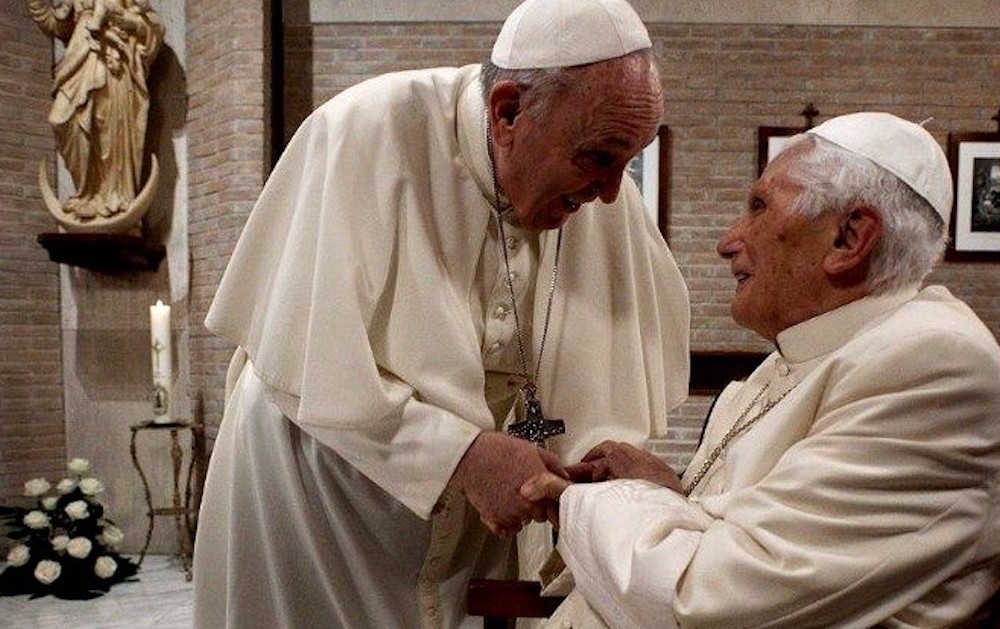Pope Francis and Pope Emeritus Benedict XVI have received the first dose of a vaccine against the new coronavirus, said the Vatican on Jan. 14.
Both the 84-year-old pope and the 93-year-old former pope got their jabs as part of a Vatican vaccination program that began on Jan. 13.
The Vatican, the world’s smallest state, began its COVID-19 vaccination program this week, prioritizing doctors, other members of the Vatican health services, and the most vulnerable.
Pope Francis is among those most at risk of the disease because part of one of his lungs was removed following an illness when he was a young man in his native Argentina.
Pope Benedict is frail and suffering from a number of ailments related to old age, such as arthritis.
There have been fewer than 30 cases of coronavirus in the Vatican City, most of them among the Swiss Guard, who live in a communal barracks.
Last week, the pope’s personal doctor, Fabrizio Soccorsi, died as a result of “complications due to COVID.”
Pope Francis said at the weekend that everyone should get a jab.
“It is an ethical choice because you are gambling with your health, with your life, but you are also gambling with the lives of others,” he told Italy’s Canale 5 TV station.
Matteo Bruni, director of the Holy See Press Office, told media that the first dose of the COVID-19 vaccine “has been administered to Pope Francis and to the pope emeritus.”


In his Christmas message, Pope Francis asked countries to share vaccines, adding that “they must be available to everyone.”
“I beg all those in charge of states, of companies, of international bodies … to promote cooperation and not competition and to seek a solution for everyone, vaccines for all, especially for the most vulnerable and needy in all regions of the globe,” the pope said in his message.
The Vatican held its vaccination program in the atrium of the large hall normally used for papal audiences.
Pictures released by the Vatican showed a medical examination table and a chair, both empty. Another showed a medical refrigerator in a room with a photo of the pope on a wall.
The Vatican said last week it had bought an ultra-cold refrigerator to store doses, suggesting it will use the vaccine developed by Pfizer and BioNTech, which must be stored at about minus 70 degrees Celsius.
In a television interview on Jan. 10, Pope Francis said people should trust doctors and not refuse the vaccine unless they had good medical reasons because their lives and those of others depended on it.
“I really don’t understand why some people say this could be a dangerous vaccine,” he said.
“If doctors say it can work well and you don’t have special dangers, why not take it? There is a suicidal denialism that I would not know how to explain, but the vaccine must be taken,” added the pope.
The Vatican has only several hundred residents. Most of its employees live in Italy and they too will be getting the vaccine.
With Reuters and Vatican News


